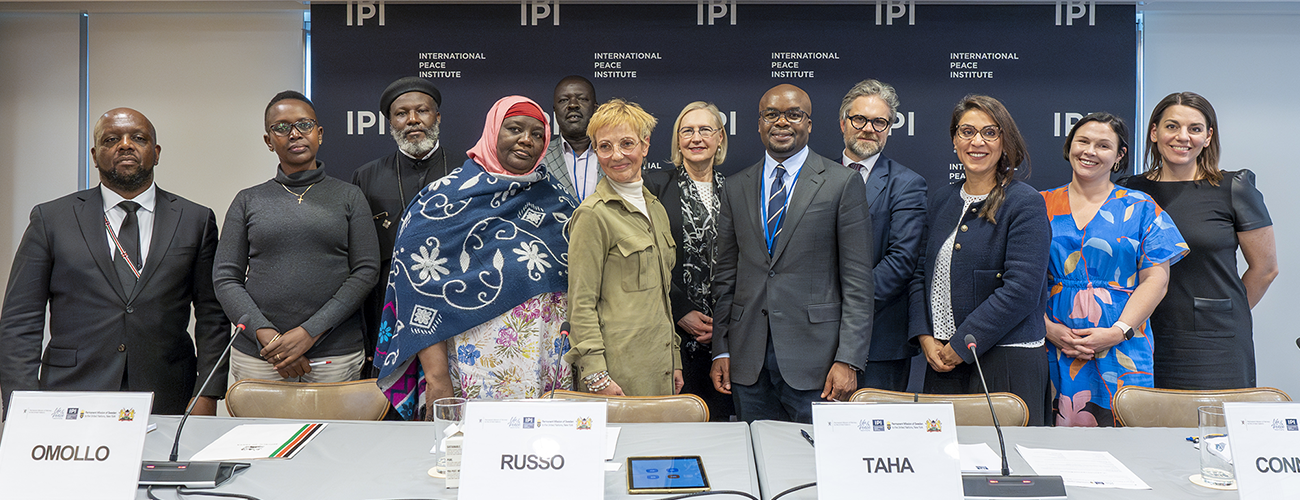IPI in partnership with the Life & Peace Institute and the Permanent Missions of the Republic of Kenya, Norway, and Sweden to the UN, cohosted a policy forum on March 21st assessing lessons learned from Kenya’s Peacebuilding Architecture Review.
The pursuit of peace, a foundational goal at the establishment of the UN in 1945, requires member states to assume primary responsibility for conflict prevention through initiatives that are nationally owned and people-centered, respect human rights, and enhance inclusivity and social cohesion. Its implementation requires a constant refreshing of peacebuilding and conflict prevention and resolution methods. This year, determining a way forward on these issues will be key to the impact hoped for in the Pact for the Future.
In 2023, in line with the push for national governments to take the lead in “identifying, driving and directing priorities, strategies, and activities for peacebuilding and sustaining peace,” the Government of Kenya commissioned a review of its national peacebuilding architecture. The initiative was spearheaded by the National Steering Committee on Peacebuilding and Conflict Management and assisted by an Independent Panel of Advisors (IPA), with support from the United Nations Resident Coordinator’s Office and other partners. Resulting from the highly consultative process involving Kenyans from diverse backgrounds, the IPA submitted to Kenya’s political leadership a report with a comprehensive set of observations and recommendations, structured around four pillars: (1) defining a national agenda for peace, (2) promoting political inclusion, (3) enhancing conflict prevention and resolution, and (4) proposing a new institutional architecture for peacebuilding. By pursuing an independent assessment that values the insights and contributions of local peacebuilders and civil society, Kenya demonstrates national ownership and leadership.
The audience heard from the IPA reflecting on its experiences on the review journey and the key findings and recommendations, with a particular emphasis on partnership opportunities in the implementation phase.
Opening Remarks:
H.E. Andreas Løvold, Chargé d’affaires and Deputy Permanent Representative of Norway to the UN
Elizabeth Mary Spehar, Assistant Secretary-General for Peacebuilding Support, Department of Political and Peacebuilding Affairs (DPPA)
Shamsa Abubakar, Deputy Chair for the Independent Panel of Advisors for the Peacebuilding Review
Speakers:
Raymond Omollo, Principal Secretary, Ministry of Interior and National Administration, Government of Kenya
Lesley Connolly, Team Leader, Global Policy, Life & Peace Institute
Rana Taha, Peace and Development Advisor, United Nations Resident Coordinator’s Office, Kenya
Sheikh Abdullahi Abdi, Independent Panel of Advisors for the Peacebuilding Review
Moderator:
Jenna Russo, Director of Research and Head of the Brian Urquhart Center for Peace Operations, International Peace Institute
Closing remarks:
H.E. Martin Kimani, Permanent Representative of the Republic of Kenya to the UN








